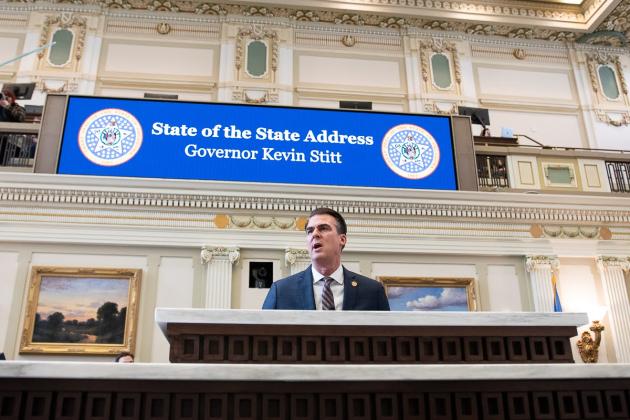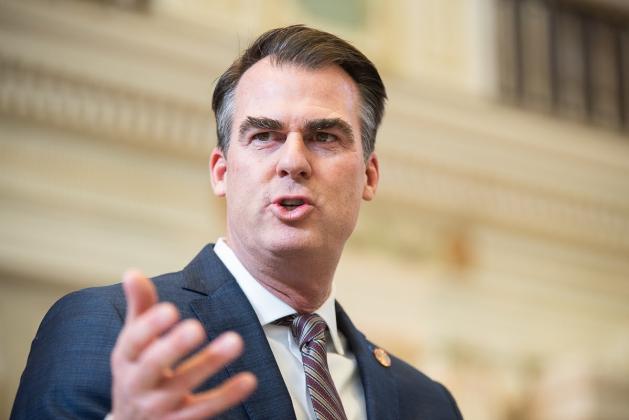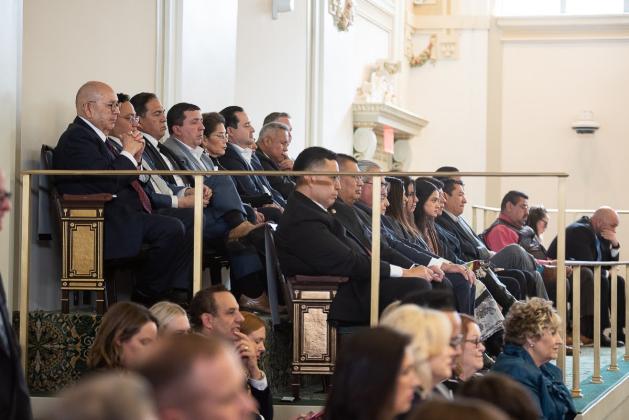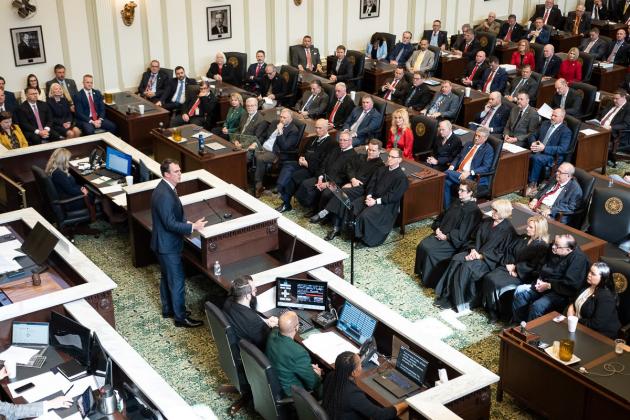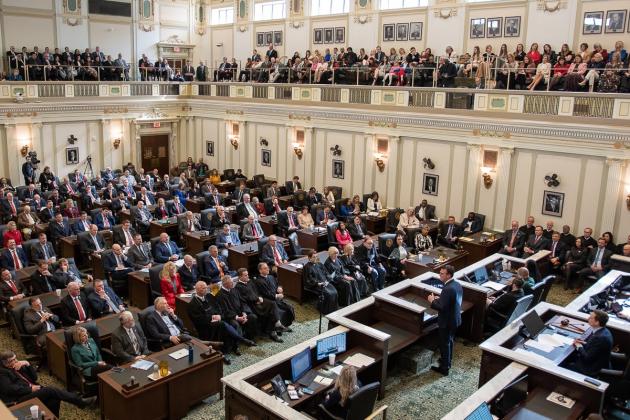Photos Provided by : ![]()
Gov. Kevin Stitt gave his State of the State speech Monday where he called on legislators to enact tax cuts, create a restructured judiciary, and add more charter schools.
Stitt proposed creating a new court that focused on business disputes. He urged lawmakers to "take a page out of Delaware and Texas' playbook."
Delaware's Court of Chancery is considered a business-friendly court, and last year Texas approved the creation of specialized business courts to hear business disputes.
“We need to keep pushing business friendly policies and reducing burdens of regulations. I'm calling on the legislature to take a page out of Delaware and Texas's playbook,” Stitt said. “Let's set up a system of courts specifically that will be designed to address business disputes.”
Stitt called on legislators to cut the state income tax rate. Last week, he called for a special session to adopt a .25% cut in the income tax rate. The House of Representatives approved it, but the state Senate took no action.
“I'll sign any tax cut that comes to my desk because as we have growth,” he said. “I'm not advocating for cutting services. What I’m advocating for is a sustainable amount of growth.”
Stitt called for more opportunities that will help Oklahoma students learn specialized trades and skills, including the creation of more charter schools.
He asked that community leaders be empowered to start new, innovative schools that are focused on the future workforce, especially in areas that have "failing" public schools.
Stitt mentioned Cristo Rey Oklahoma City Catholic High School, Dove Science Academy and Norman Aviation Academy as examples he wants to see duplicated across Oklahoma.
Stitt touted Oklahoma passing its parental choice tax credit last year.
The Parental Choice Tax Credit program gives parents more control over how and where their children are educated. The program gives Oklahoma parents up to $7,500 per tax year for private school expenses, tuition and fees, and parents who homeschool their child qualify for a $1,000 tax credit.
Stitt highlighted an Edmond family that was able to utilize the school tax credit.
“Emily McDonald, is a Edmond mom of three, and she sent her kids to their zip code school. Her oldest child is thriving in public schools. Her second child, a boy with autism, faces struggles as well, but he has also gotten support needs at his school,” Stitt said. “But her younger daughter, she came home from school crying every single day because of the way other students treated her brother (with) autism. Emily had recently lost her husband and was raising these three children. She didn't know how she'd be able to afford to send her daughter to another school. The tax credit was in the works, so she took a leap of faith and enrolled her daughter in a private Christian school, praying that they would be approved for the tax credit. I’m happy to report her daughter is thriving in her new school. In just half a school year, she has jumped three grade levels in reading.”
Stitt addressed his testy relationship with some of Oklahoma’s Native American tribes, following the U.S. Supreme Court’s McGirt decision in 2020. The McGirt decision was limited to criminal jurisdiction.
“Many Oklahomans I talk to want clarity about who has authority to do what in our state,” he said. “That’s because today, our state is still dealing with the fallout from the McGirt decision. It’s a decision that has rocked our state and caused division where previously there was none.”
Stitt contrasted the Navajo Reservation’s relationship with the Arizona state government with Oklahoma’s relationship with the 39 tribes in the state.
“There are tribal governments who want Tulsa and eastern Oklahoma to look like the Navajo Reservation,” he said.
Stitt said he negotiated new compacts with the Chickasaw, Apache, Citizen Potawatomi and Wyandotte tribal governments over the past few weeks.
“I know there is a path forward because of the success we’ve found negotiating compacts with the Chickasaw, the Apache, the Citizen Potawatomie, and the Wyandotte tribal governments over the past few weeks,” he said.


